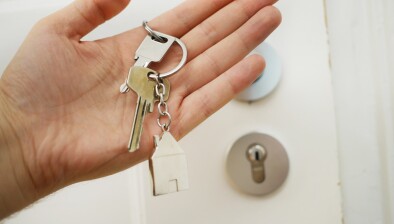Veterans and disabled people among those to benefit from shared equity scheme improvements

Housing secretary Shona Robison
Disabled people, first-time buyers and others on low to medium incomes will have an increased opportunity to buy a home that meets their needs after changes were made to a shared equity scheme.
From today, the threshold of the Open Market Shared Equity Scheme – which allows people to buy a home without having to fund its entire cost – has been raised by 9% across the country to reflect rising house prices. The scheme is aimed at priority groups who need support to buy their own home.
Applicants will also be able to make offers on properties above the formal valuation amount, where they have funds available. People who have an application in progress do not need to reapply to benefit from the changes.
Housing secretary Shona Robison said: “These are positive changes which will put applicants on a more level playing field with other buyers when purchasing an affordable home.
“We are well aware of the rise in house prices and we have listened to people’s feedback. That is why we are acting to make the process fairer and to offer a helping hand in challenging times.
“Our evidence-based approach ensures that the scheme continues to be targeted at priority groups and to ensure that, across Scotland, all areas are able to benefit from a viable scheme with a reasonable number of purchases.
“The Scottish Government delivered 111,750 affordable homes between 2007 and 2022, with more than 78,000 for social rent. Progress has started towards our next ambitious target of delivering 110,000 affordable homes by 2032, of which 70% will be for social rent and 10% in remote, rural and island communities.”
Through the Open Market Shared Equity (OMSE) scheme, buyers pay for the biggest share which is usually between 60% and 90% of the home’s cost. The Scottish Government will hold the remaining share under a shared equity agreement.
The OMSE scheme is available across Scotland. It’s open to first-time buyers and these priority access groups:
- people aged 60 and over
- social renters (people who rent from the council or a housing association)
- disabled people
- members of the armed forces
- veterans who have left the armed forces within the past two years
- widows, widowers and other partners of service personnel for up to two years after their partner has lost their life while serving.







